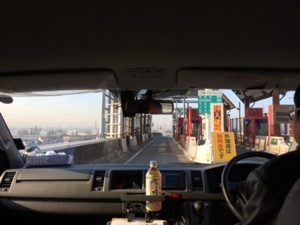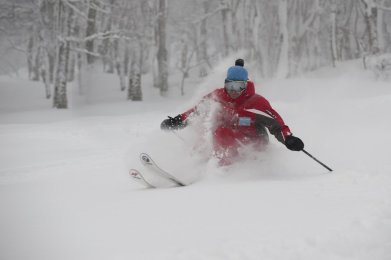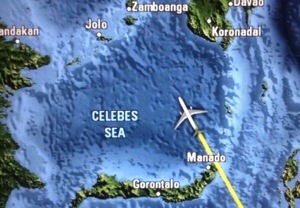All I really needed was a towel. In the larger scheme of things nothing too pressing. From across the counter there was a soft, almost imperceptible enquiry.
“Large or small?”
“Both,” I replied.
“Hai!” The reply shot back, faster than a Nadal backhand and with the sort of military precision that found me nervously shuffling my feet. Firm and single-minded.
As quickly as she’d responded, all that was left where she’d been standing was a shuddering vacuum and a quiver of loose papers fluttering in her wake. She was running. No, not a figurative ‘running like the wind’ type of running, but a literal “going quickly by moving the legs more rapidly than at a walk and at such a manner that for an instant in each step both feet are off the ground” running. Fast.
Before I could make out the shape of the approaching mercurial object she stopped in her tracks, bowed until her forehead seemed to touch the floor and handed me the towels. The entire transaction, from beginning to end, took about 20 seconds.
Aside from the more obvious reflections about the differences in approach to customer service here in Japan (albeit still a very limited experience) to those experienced in Australia (an extensive, but not often rewarding, set of experiences), what struck me most was my own reaction to being treated with such dedicated and focused attention. I actually felt uncomfortable. Not because I didn’t enjoy the attention, nor because I was unaware of language or customs, but simply because I was not used to feeling that special as a customer. As mundane as this interaction may seem on the outside, it reminded me of how often, as a customer, I am placed in a position of approaching many sales or service transactions as a ‘double helix’. Not only am I offering financial compensation for the service or product, but I often find myself in a secondary process of gaining someone’s attention to either take my money or, if they have already taken it off my hands, to actually perform the service which they have agreed to by a relatively simple transactional act.
Come on people, it’s not that hard. National economies are transactional, even to the seemingly insignificant minutiae of purchasing milk at the local convenience store. What often keeps people buying from you is less the product and more likely how you make the customer feel as they part with their hard earned cash. It’s not demeaning to treat customers with respect. That treatment is itself generative of greater respect for the process, the persons involved and will, as a result of a natural feedback loop, invest all parties in the process with increased levels of respect if not, at least, civility.
The Japanese service industry understands this and, even though I’ve only been here a few days I already want to come back because I feel heard and ‘understood’. That’s repeat business already banked before the first transaction is even complete!
Hai!


 Together with a whole bunch of this…
Together with a whole bunch of this… And maybe a little bit of this (that’s me right at the back there)…
And maybe a little bit of this (that’s me right at the back there)…















